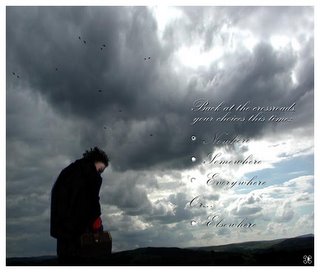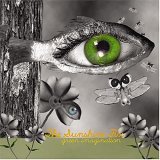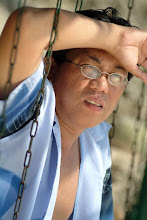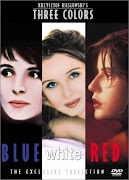
EVERY WRITER worth the ground under his feet knows losing one's head in the ether of imagination is a risk too real for comfort. It's a tightrope act no less of a daze than keeping one's toehold on truth between the devil and the deep blue sea: escapism from and engagement with the world. Indeed, to find a room of one's own is also to run the peril of shutting one's self off till the walls crumble on creativity's reason for being-- awareness, empathy, discovery.
"A retreat from the world can be a perilous journey." So asserts the title of Jonathan Rosen's essay printed in The New York Times:
THE JEWISH MYSTICS believed that God, in order to create the world, had to make himself smaller. I consoled myself with this notion when my daughter was born and I had to move my office out of the large spare bedroom and into the maid's room.
Long before my move, I'd been keenly aware of the weird expansions and contractions necessitated by creative life, particularly the painful paradox that to write about the world, you have to retreat from it. Not completely, of course. I like the way Walt Whitman described himself: "Both in and out of the game, and watching and wondering at it."
Even with that credo in mind, writing is lonely work. For Virginia Woolf it wasn't glorious travels or vast experience but a room of one's own that the writer needs most. She knew you can only advance by retreating. Of course her maid's room probably had a maid in it, which no doubt took the edge off the solitude.
But all writers wind up metaphorically in the servants' quarters. When you write, you're taking orders from somewhere — a higher (or at least a lower) power — and the work isn't always pretty. I was appalled to discover that my first novel, "Eve's Apple," was about a woman starving herself and a man madly in love with her and morbidly fascinated by her illness. It is not the novel I thought I would write, not how I wished to enter the world. But I was forced to say, like Prospero pointing at Caliban, "This thing of darkness I acknowledge mine."
The inner journey is often a perilous one. Even the divine contraction was fraught with danger. The mystics concluded that because God had to shrink in order to make room for the world, he was no longer all-powerful. The vessels intended to receive his glory broke, scattering divine sparks all over the place and introducing imperfection into the world, presumably explaining why the world is full of flawed characters and horrific plot twists. All I had to do was install a second phone line.

But even if I do not have to worry about my superabundant energy overflowing inadequate containers (if only I did!), stepping out of life can be disorienting. It can even seem a little humiliating, especially in New York City, with the busy world streaming past my windows. I became keenly aware of this when, along with our daughter, my household acquired a nanny. She only works three days a week, but her presence has made me awkwardly aware of just what my writing day looks like.
Our nanny's husband is a welder and works outdoors in all kinds of weather. What does she think when she sees me, a grown man who goes to work in his bedroom slippers? Or when I wander out of my little room at midday, while my daughter is taking a nap, to lie on the couch with a book? Or if I sit by the window staring out for a while? Or if the need to figure out a certain scene or a certain sentence — or the need to escape from a certain scene or a certain sentence — drives me from my desk over to, say, a box of cereal for a late-morning snack.
Keats referred to the poet's “diligent Indolence,” a state of suspended activity necessary for creativity. On days when I'm really diligent, I might even take a nap, not unlike my daughter who, after 12 hours at night, still needs a little supplementary sleep to feel refreshed. Play, after all, is hard work; Anna Freud called play the work of children. And perhaps of writers, too.
Play is work; inside is outside; indolence is activity. One might add that the imaginary is real, and introspection is actually a form of social research. No wonder I have to take a nap from time to time. Eventually one must put aside the paradoxes and the explanations and simply write.
But even then I find that the paradoxes make their way into the writing. "The Talmud and the Internet," my most recent book, despite its title and subject, wound up having at its core a description of my two grandmothers. In a book about harmonizing unlikely elements, nothing challenged me more than my own contradictory inheritance: one of my grandmothers lived a long and prosperous American life; my other grandmother was murdered by Nazis.
Each life and death pointed to radically different conclusions about the nature of the world, of human conduct. The best I could do was put them side by side and, in the manner of the Talmud, let them each stand as point and counterpoint, neither dissolving into the other. I let my grandmothers take their place alongside all the famous figures in my book, Talmud sages and great writers and historical figures, because without that personal element my public speculations seemed weirdly abstract. There's always a piece of writing that for me must be close to home, the string that binds the balloon to the earth.

I was at some level as embarrassed to find myself writing about my grandmothers as I was to find myself writing about a self-starving woman. Where was the grand picaresque American adventure I had always imagined I would create? What were my grandmothers doing in the middle of everything, calling me home? The wonderful thing about writing is that it forces you to confront yourself in a way you don't usually have to. That is, needless to say, also the terrible thing.
I used to waste my energy envying an earlier generation of Jewish writers, children of immigrants who seemed umbilically linked to authentic experience I was born too late for. They were fueled by a world-conquering hunger that made their protagonists born-again Don Quixotes. Well, as Jorge Luis Borges wrote, "The world, unfortunately, is real; I, unfortunately, am Borges." This is a universal problem, not a literary one. Everybody has to find his own voice, whether or not he is a writer.
This is why all the arcane things a writer discovers about his craft aren't really arcane. Everybody has to make the inner descent into himself, everybody needs metaphors to live by, and everybody has to order the chaos of experience into some kind of narrative, if only in the depths of dream-fashioning sleep. In that regard, the writer who stays home is really a kind of everyman. There should be more novels about him.
He is also something of an immigrant himself, exploring the world and groping for the words that will help him master it. And staying at home has taught me something else: my daughter is a kind of immigrant, too. I hear her as I write this; she is in her highchair in the kitchen, just outside my door, being fed her lunch. She is learning to say brief truncated words: "nana" for banana; "mih" for milk. Soon enough she will know my language so well that the physical world she is on such intimate terms with may seem abstract, reaching her through a muffling amnion of mediating words.
Inevitably my home is becoming a sort of melting pot for my daughter. She cannot go through life yanking the phone off the hook, pointing at things and screaming if she doesn't get them. She cannot (very important) push open the door of my maid's room whenever she wants.
And though this process of assimilation is necessary, it has a small element of sadness in it for me. Because I so love her untutored, marveling attitude to the world. I love her deep attach-ment to sunlight, the way she pokes the water in her bathtub to test its properties, the way she gapes at the mystery of a face, laughing in amazement.
 "Not in entire forgetfulness and not in utter nakedness but trailing clouds of glory do we come," Wordsworth wrote. For him God himself was "our home," the Old Country where we all once lived and for which we all secretly pine. On earth we learn a new language. But if we manage to keep the trace of an accent from the mysterious place we once inhabited, so much the better for us.
"Not in entire forgetfulness and not in utter nakedness but trailing clouds of glory do we come," Wordsworth wrote. For him God himself was "our home," the Old Country where we all once lived and for which we all secretly pine. On earth we learn a new language. But if we manage to keep the trace of an accent from the mysterious place we once inhabited, so much the better for us.Certainly all my favorite writers have retained their attitude of wonder. And I think this matters to me most about writing, beyond history and politics, plot and structure, the literal and symbolic. Of course one wants all those things, too. But there is something much more primitive and simple and elusive that lies at the core of writing that has to do with the sheer mystery of the created world. For me it is what links a cave painting to a page of "Ulysses.”
Perhaps it is the need to approach this mystery that explains why I am a grown man who stays home with the nanny when other people are going to work. And why, as I sit in the maid's room proudly overhearing my daughter speak her first words in my language, I find myself hoping I will capture a few forgotten elements of hers.

























































1 comment:
thank you myke. i love this beautiful description of a writer's view and the writing exprience.
Post a Comment